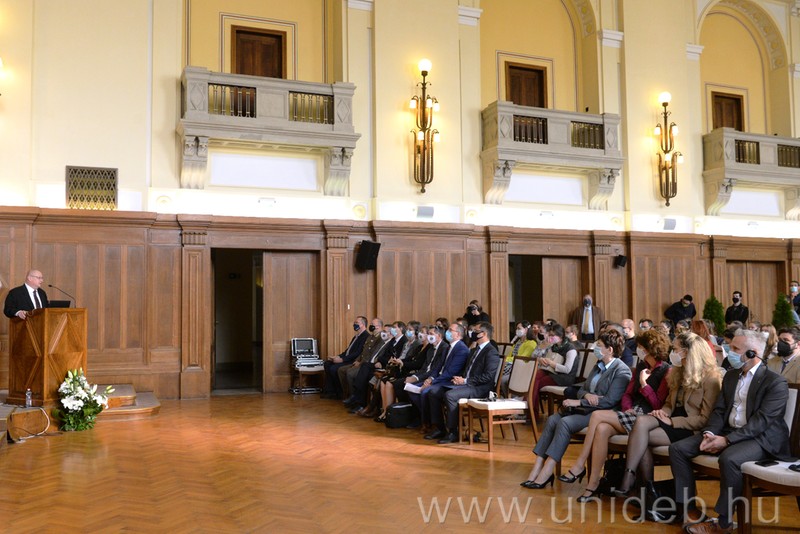The development of artificial intelligence, digitization, robotization, their spread and the economic and social changes that followed were discussed in the Hall of the University of Debrecen on Wednesday.
A 18-19. György Kossa, Chairman of the Board of the Count István Tisza Foundation for the University of Debrecen, said the Faculty of Arts and Sciences of the University of Debrecen, Faculty of Arts, at the conference on artificial intelligence organized by the Goethe Institute in Budapest. He said the development of the industry has now reached artificial intelligence, which is essential in self-driving cars, telecommunications and manufacturing technology, for example. “Digitization and its wider spread are essential for humanity to move forward,” he said. According to György Kossa, it is natural that many people are averse to this, so the positive effects of the developments must be presented and an important role awaits industry players, cultural mediators and education. The president explained that according to the researchers and economists of the future, by 2030, global GDP will be 14-16 percent higher due to the ever-accelerating spread of artificial intelligence-based technologies. As this is as important as the first industrial revolution, higher education and research must play a key role in this. “The University of Debrecen will do its utmost to give these collaborations more and more space,” he declared.
László Papp, the mayor of Debrecen, spoke about the fact that, thanks to science, the world will change more in the 30 years ahead of us than in the 100 years left behind. “The future of a country, a city, today largely depends on how it can prepare its citizens for these challenges through education,” the mayor said.
We are working under the leadership of the University of Debrecen to hand over the largest Hungarian 5-petaflops supercomputer here next year. In other words, when it comes to artificial intelligence, the University of Debrecen is unavoidable, emphasized Károly Solymár, Deputy State Secretary for Digitization at the Ministry of Innovation and Technology. He believed that what used to be steel and gasoline, now semiconductor and data sets that were megawatts yesterday, had now become terabytes. If we provide timely answers to the questions that arise because of these, we can be the winners of this change of era, the Deputy Secretary of State pointed out.
At the event, András Hajdu, Dean of the UD Faculty of Informatics: Transition to a Data-Driven Economy and Research on the Basis of Artificial Intelligence in a Multidisciplinary Environment, Csilla Csukonyi Assistant Professor, UD Faculty of Humanities, Institute of Psychology of Debrecen, while Evelin Hust, Director of the Goethe Institute in Budapest, gave a presentation entitled: We and MI. Csilla Csukonyi also presented the work and research results of the UD Neurotech WP6 Robotics research group (leader: Levente Takács).
The meeting was closed by an informal discussion led by Róbert Keményfi, Dean of the Faculty of Humanities of the UD, during which the possibilities of future university-industry and German-Hungarian cooperation were discussed.
hirek.unideb.hu


















